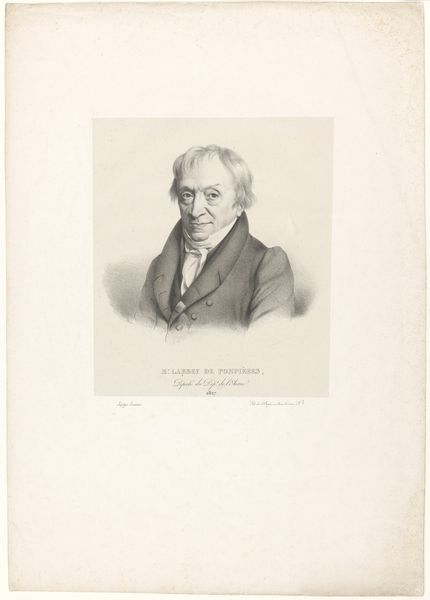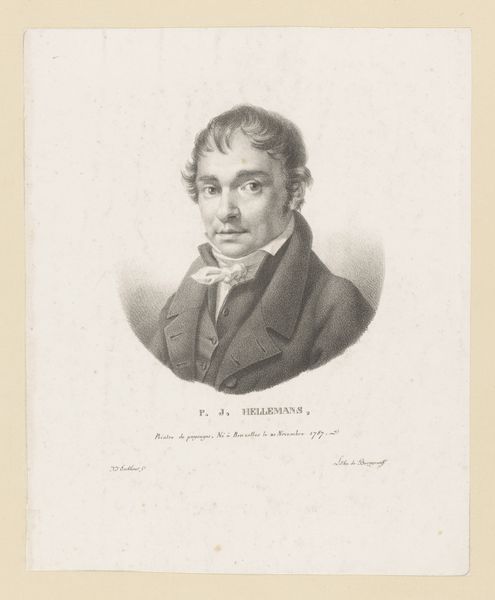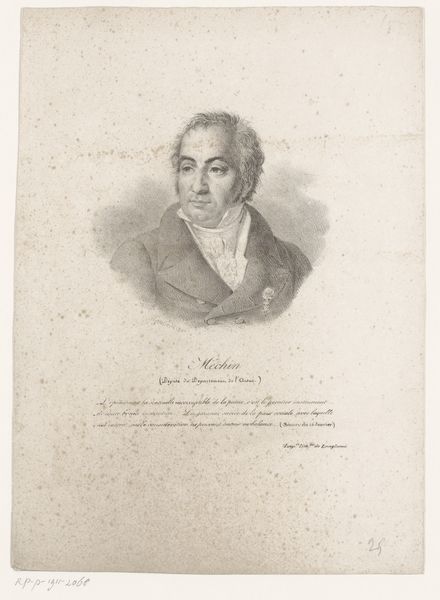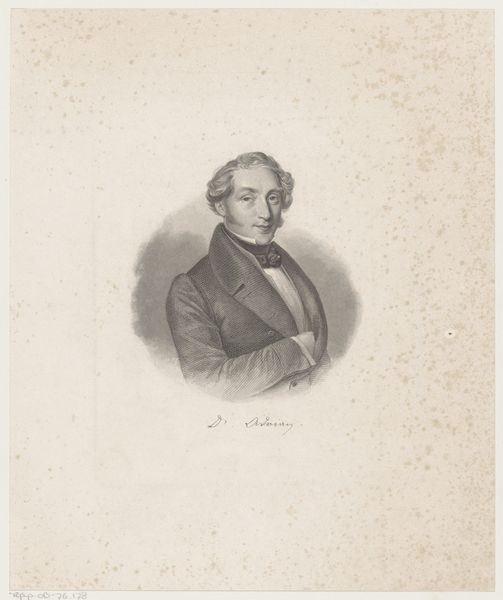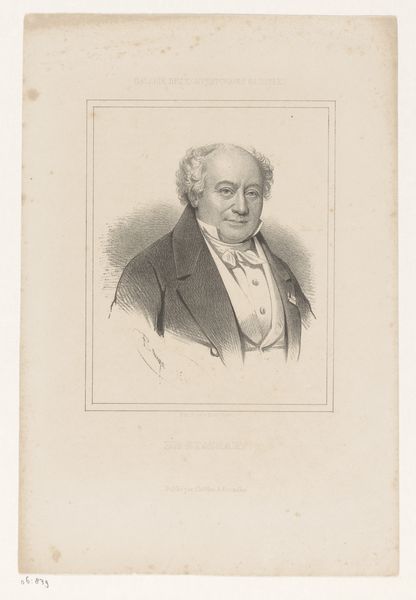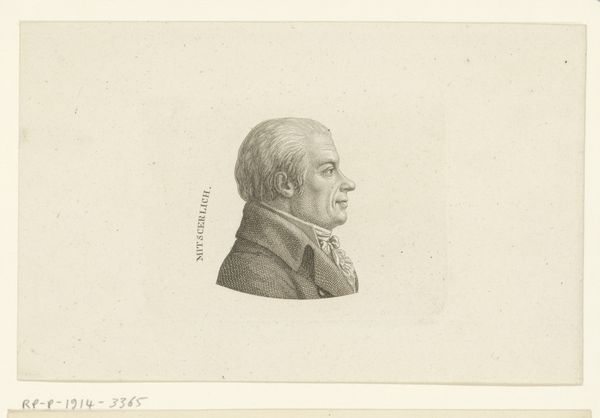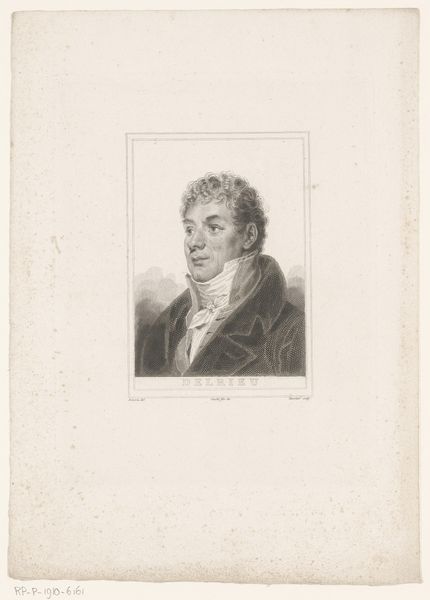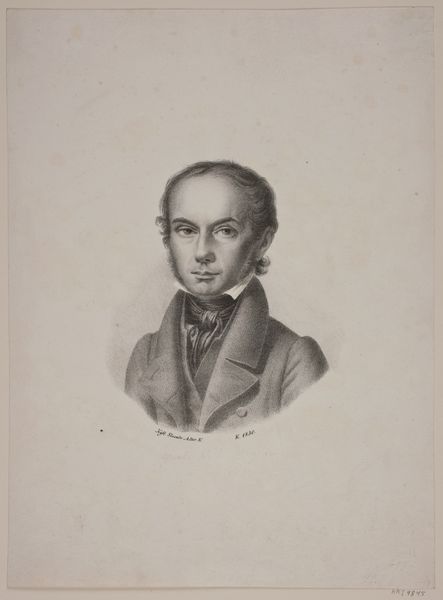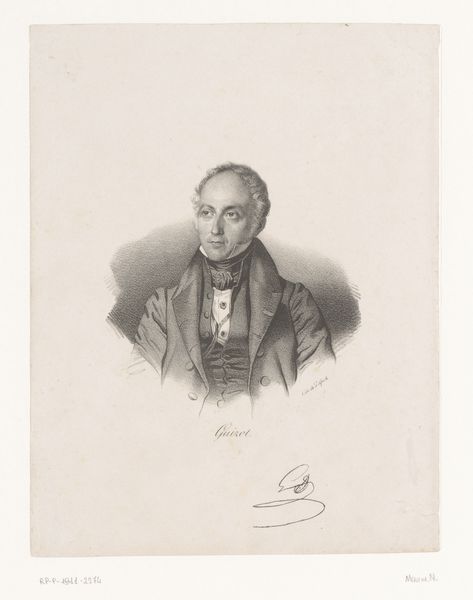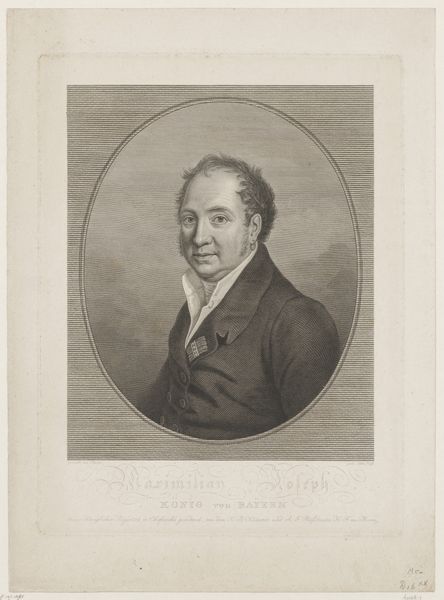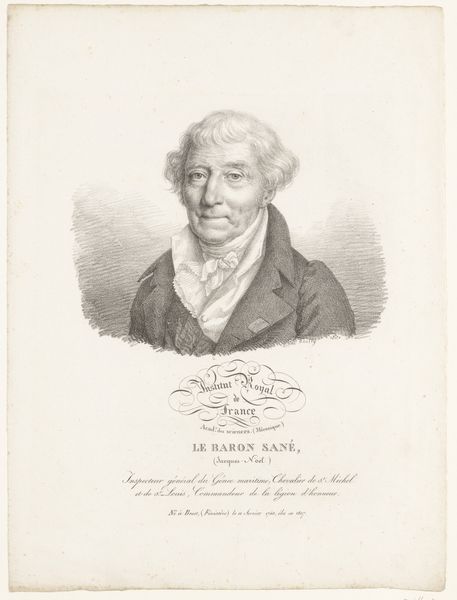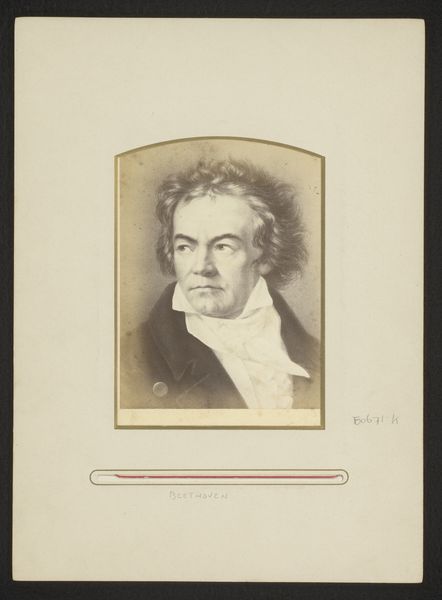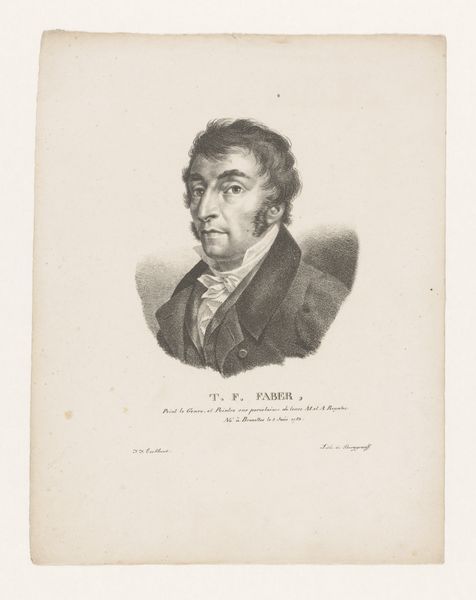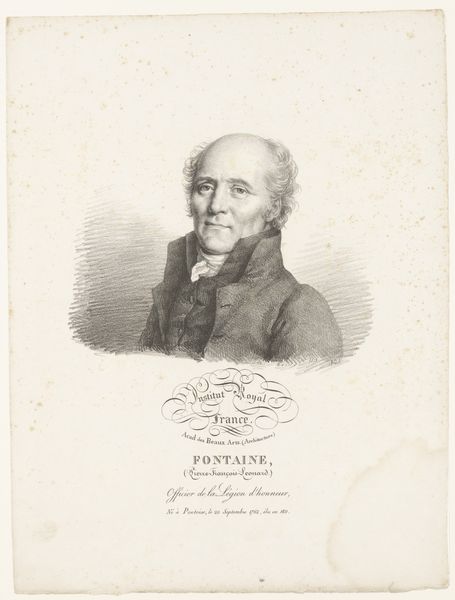
engraving
#
portrait
#
romanticism
#
history-painting
#
engraving
Dimensions: height 104 mm, width 91 mm
Copyright: Rijks Museum: Open Domain
Editor: This is Heinrich Lödel’s portrait of Alexander von Humboldt, an engraving dating between 1808 and 1861. I’m struck by the detail Lödel achieved; it’s incredible. How do you read this piece? Curator: Well, the engraving serves not just as a likeness, but as a potent symbol of Humboldt’s legacy within the complex web of 19th-century scientific exploration and colonialism. How does Lödel portray Humboldt? Notice his posture, clothing. Editor: He's portrayed as a respected gentleman, dressed in what looks like formal attire, though there's a bit of disarray to his hair...it's not overly formal, I think. Curator: Exactly. While he certainly projects authority and intellect as one of the leading scientific figures of the time, Lödel subtly avoids presenting him as an unapproachable icon. Given that Humboldt’s research significantly benefited from and contributed to colonial enterprises, shouldn't we question this visual narrative of the enlightened gentleman? Editor: I hadn't thought of that! So the engraving isn't just a portrait, but also an ideological statement, maybe softening some of the realities of that time? Curator: Precisely. Consider also how the printing press at the time played into this. Lödel's engraving helped popularize a specific image, which then shapes public opinion on this figure. Do we perhaps also see some visual echoes of romanticism and its ideals about heroism in here? Editor: I think so. This really adds a new layer to how I understand portraiture of this period, to consider the message embedded in the representation and circulation. Curator: Agreed. Thinking about the politics inherent to its creation really reframes how we engage with even seemingly straightforward portraiture.
Comments
No comments
Be the first to comment and join the conversation on the ultimate creative platform.
